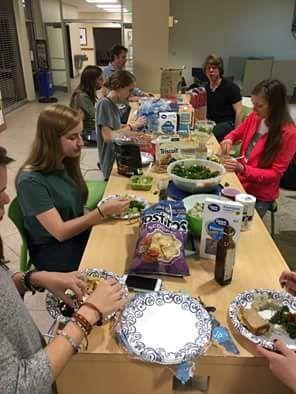Students dedicated to combating cruelty toward animals have formed a new organization, Animal Advocates, to promote animal rights through volunteer opportunities and providing education to the public on how they can reduce animal suffering.
“Animal rights, animal welfare is something that people intuitively agree with, at least as far as pets are concerned,” said mathematics senior and club member Jesse Clifton. “Everyone sympathizes with animals and thinks that they ought to be protected. Our club is about expanding that innate respect for animals everywhere, not just the ones in our immediate surroundings.”
The focus of the organization is broad, Clifton said, ranging from educating the public on issues in animal husbandry conditions to veganism to the treatment of animals at places like SeaWorld.
Animal Advocates plans to host volunteer opportunities, guest speakers and socials, such as vegan potlucks throughout the semester, natural resource ecology and management sophomore and club president Sarah Buckley said. The first of these was assisting Cat Haven in cleaning its their animal shelter on Saturday.
“You don’t have to be a vegan to be in the club,” Buckley said. “The official diet stance of the club is reducetarianism, which is making the effort to reduce the number of animal products in your daily meals.”
One of the easiest ways to do this is to cease consumption of chicken, Clifton said. The small size of chickens often means multiple animals are killed to produce the same amount of meat that could be obtained from a single cow or pig.
“If you just replace those chickens with larger animals, you’re contributing to the suffering of fewer animals,” Clifton said.
The increasing availability of vegetarian and vegan substitutes for animal-derived foods makes transitioning to a diet that causes less animal suffering easier, Buckley said.
Medical research on animals is a complicated topic among animal rights advocates since the results sometimes save human lives, Clifton said.
These issues also arise when talking about hunting to eliminate invasive species and cull unbalanced wildlife populations humanely, Buckley said.
Other areas such as cosmetics and fashion are easier decisions. Choosing to purchase cosmetic products not tested on animals and substituting faux fur and leather for the real products are other ways to reduce animal suffering, Buckley and Clifton said.
“We don’t realize how many products we use are tested on animals and do contribute to animal suffering,” Buckley said. “Something that we advocate for is critical thinking about what it is that you are using and what has gone into that product.”
A 2014 study by the Animal Legal Defense Fund measuring the legal protections of animals by state placed Louisiana in the middle at 21, with Illinois ranked best in animal cruelty reduction and Kentucky the worst.
The results were formulated based on criteria including strictness of penalties for animal cruelty, reporting laws, higher standards of care and restrictions on pet ownership by convicted abusers. The FBI also began tracking animal cruelty cases and including them in their national crime database in January — a move Animal Advocates applauded.
“Just thinking more clearly about how we use animals and the suffering we inflict on them, and whether it’s really worth it for us, is something that we want to encourage,” Clifton said.
Students form organization to promote animal rights
By Trent Parker
March 29, 2016

The Animal Advocates attend a vegan potluck with the Plant-based Society.
More to Discover







